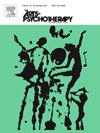Identity development of Arab drama therapists: The role of ethnic boundary work
IF 1.5
3区 心理学
Q3 PSYCHOLOGY, CLINICAL
引用次数: 0
Abstract
Previous studies have suggested that creative arts therapists who work in conservative societies must adapt their Western therapeutic ideologies to collectivist and traditional norms. Less is known about how these creative arts therapists construct and maintain their professional identity in diverse sociocultural contexts. Building on the literature that emphasizes the role of ethnic boundary work in professional identity processes, we examined how Arab drama therapists maintain, challenge, and negotiate ethnic boundaries in the process of professional identity construction.
Participants were 38 Israeli-Arab drama therapists (36 female) working in Israeli-Arab schools. Data were collected through semi-structured interviews (27 participants) and playback theater groups (12 participants). Thematic analysis revealed three different forms of ethnic boundary work: "Distinguishing Arab identity from drama therapy", "Drama therapy as an act of challenging ethnic and gender boundaries", and "Negotiating ethnic boundaries within the context of drama therapy".
The current study emphasizes the sociocultural context of boundary work by illustrating how Israeli-Arab drama therapists define their professional identity across ethnic, gender, and political tensions. We conclude with implications for research and practice.
阿拉伯戏剧治疗师的身份发展:种族边界工作的作用
以往的研究表明,在保守社会中工作的创意艺术治疗师必须使其西方治疗思想适应集体主义和传统规范。至于这些创意艺术治疗师如何在不同的社会文化背景下构建和维护自己的职业身份,人们知之甚少。有文献强调种族边界工作在职业身份认同过程中的作用,在此基础上,我们研究了阿拉伯戏剧治疗师在职业身份建构过程中如何维护、挑战和协商种族边界。数据是通过半结构化访谈(27 名参与者)和回放戏剧小组(12 名参与者)收集的。专题分析揭示了三种不同形式的种族边界工作:"当前的研究强调了边界工作的社会文化背景,说明了以色列-阿拉伯戏剧治疗师如何在种族、性别和政治紧张局势中界定自己的职业身份。最后,我们提出了研究和实践的意义。
本文章由计算机程序翻译,如有差异,请以英文原文为准。
求助全文
约1分钟内获得全文
求助全文
来源期刊

Arts in Psychotherapy
Multiple-
CiteScore
3.20
自引率
11.10%
发文量
66
期刊介绍:
The Arts in Psychotherapy is a dynamic, contemporary journal publishing evidence-based research, expert opinion, theoretical positions, and case material on a wide range of topics intersecting the fields of mental health and creative arts therapies. It is an international peer-reviewed journal publishing 5 issues annually. Papers are welcomed from researchers and practitioners in the fields of art, dance/movement, drama, music, and poetry psychotherapy, as well as expressive and creative arts therapy, neuroscience, psychiatry, education, allied health, and psychology that aim to engage high level theoretical concepts with the rigor of professional practice. The journal welcomes contributions that present new and emergent knowledge about the role of the arts in healthcare, and engage a critical discourse relevant to an international readership that can inform the development of new services and the refinement of existing policies and practices. There is no restriction on research methods and review papers are welcome. From time to time the journal publishes special issues on topics warranting a distinctive focus relevant to the stated goals and scope of the publication.
 求助内容:
求助内容: 应助结果提醒方式:
应助结果提醒方式:


